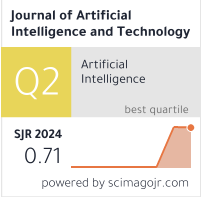Developing Soft Skills in the Artificial Intelligence Era: Communication, Business Writing, and Composition Skills
DOI:
https://doi.org/10.37965/jait.2024.0496Keywords:
artificial intelligence, business writing, composition, communication, soft skills, teaching and learningAbstract
This study explores the development of soft skills in the artificial intelligence (AI) era. Initially, the study, through an anonymous online survey, explored why students use AI and large language models (LLMs). It was found that students use AI for general and academic purposes. From a general perspective, students use AI and LLMs for (1) convenience, (2) lack of time, and (3) lack of curiosity/interest. From an academic perspective, students use AI and LLM platforms as they (1) lack familiarity/knowledge, (2) lack basic skills, (3) lack confidence, (4) have an eagerness to score high grades, and (5) wish to provide different perspectives. To assist in developing students’ soft skills and discourage possible destructive outcomes in the AI era, the study suggests integrating AI platforms as part of teaching. This integration can be carried out by (1) introducing AI tools to students in a productive manner, (2) aligning the use of AI tools with the curriculum and teaching styles, (3) planning lessons and interactive activities using AI platforms, and (4) using AI tools to provide feedback and vice versa. In communication courses, instructors shall (1) create a supportive environment, (2) organize classroom discussions and debates, (3) create public speaking opportunities, (4) provide room for oral communication practices, (5) integrate the use of technology and multimedia, and (6) provide feedback and reflection. In business writing courses, instructors shall (1) encourage effective communication in classrooms, (2) facilitate collaboration and teamwork, (3) use role-play scenarios, (4) introduce project management tools, (5) teach professional etiquette, and (6) organize networking events. In composition courses, instructors shall (1) embrace technology, (2) teach students to critically evaluate online sources, (3) design assignments that require critical analysis, (4) encourage creative writing assignments, (5) promote imagination and originality, and (6) conduct workshops. These practices, which are provided in line with AlAfnan’s taxonomy of educational objectives, shall assist students in developing their soft skills in a way that maintains the relevance of classroom teaching in the AI era.
Published
How to Cite
Issue
Section
License
Copyright (c) 2024 Authors

This work is licensed under a Creative Commons Attribution 4.0 International License.





